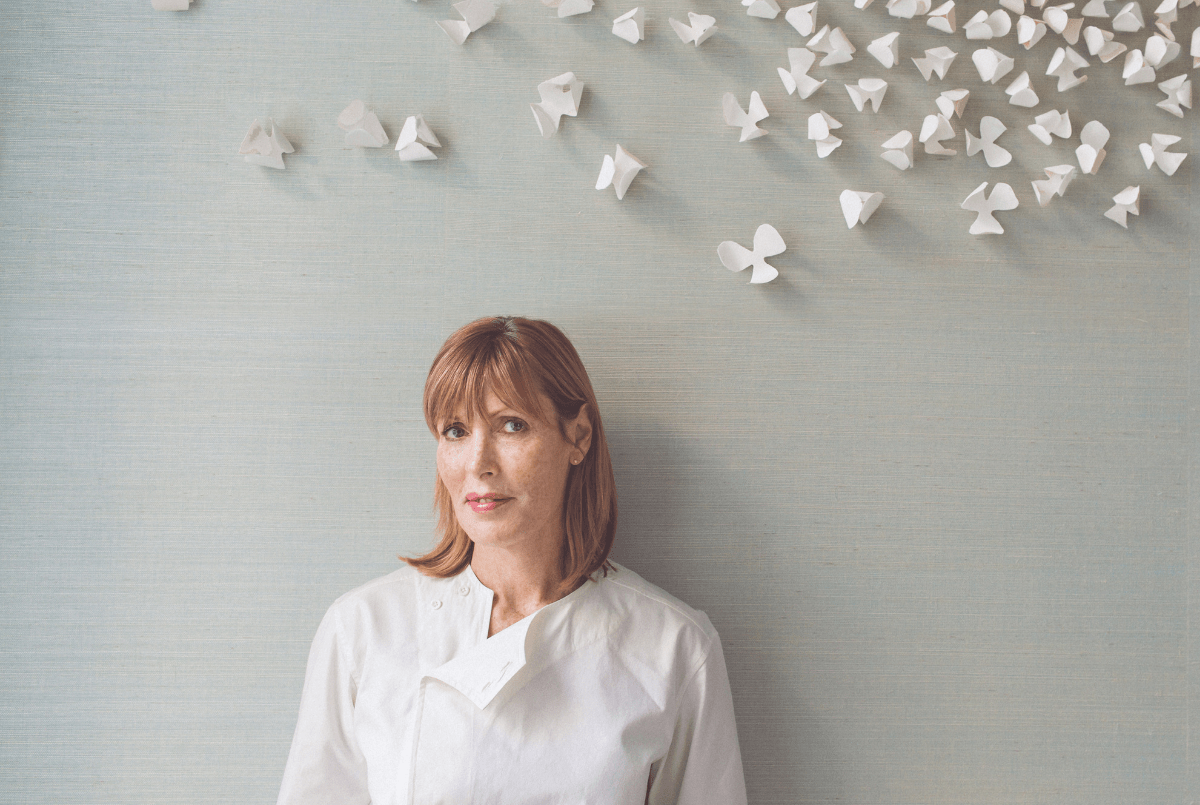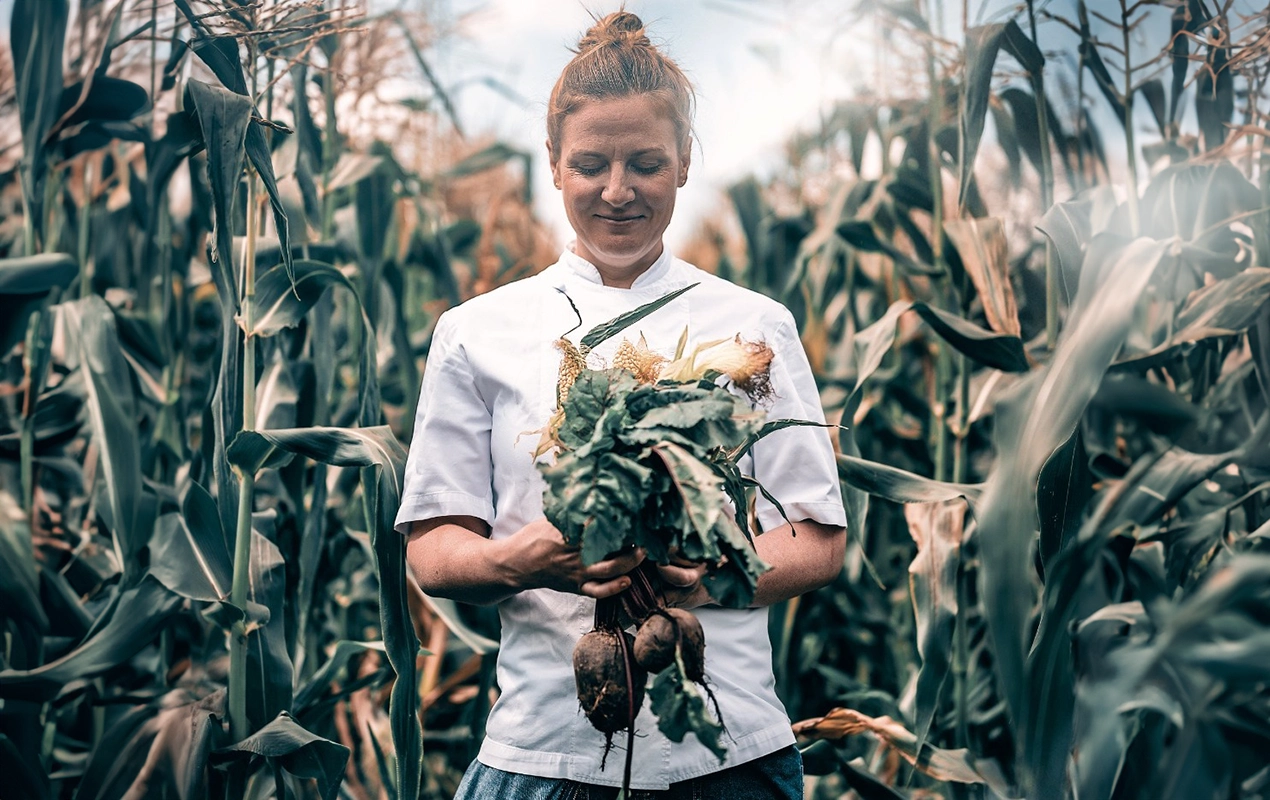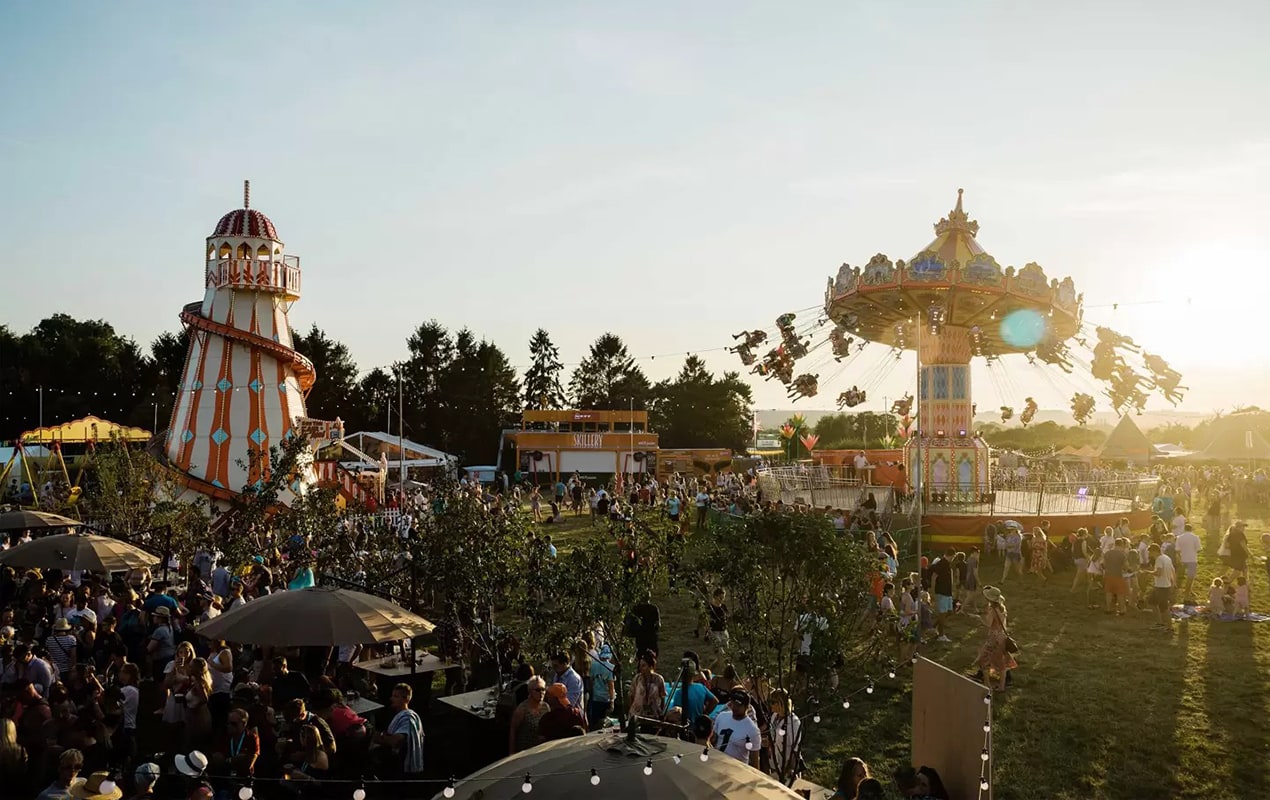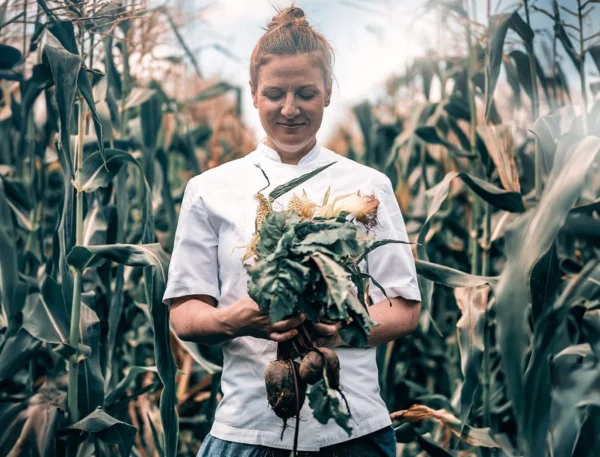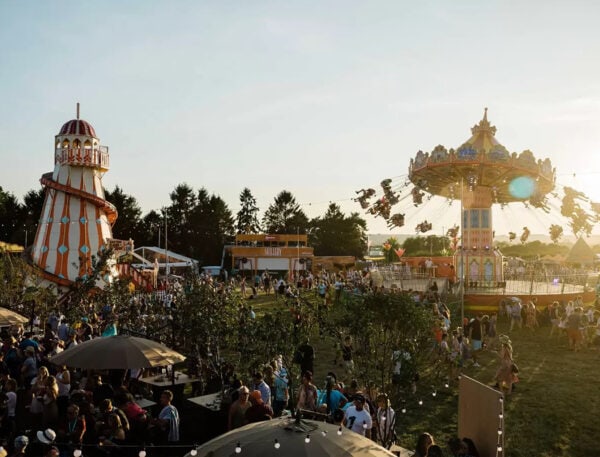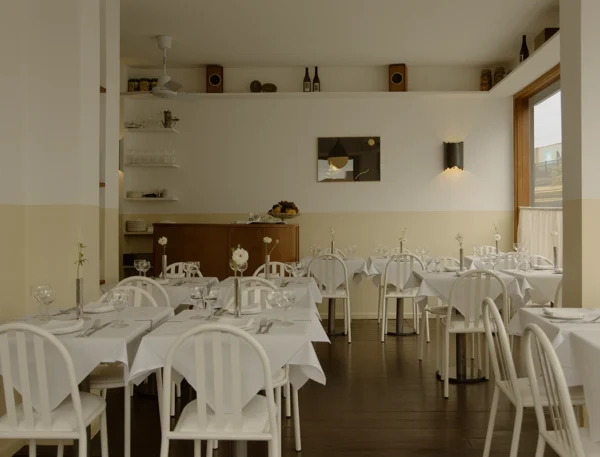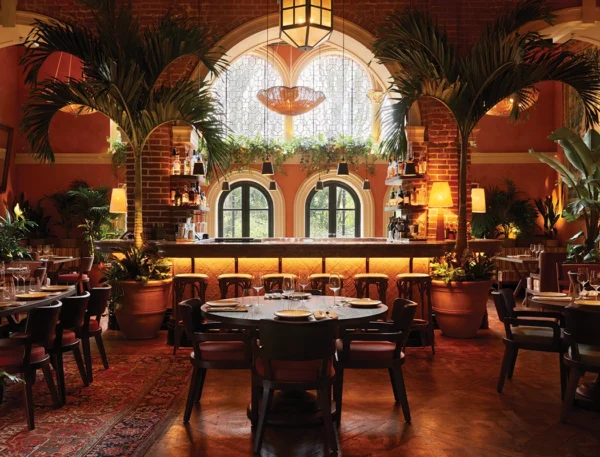Chef Skye Gyngell has put eco-dining on the menu at her Somerset House restaurant Spring, with the elimination of single-use plastic and a savvy initiative to reduce food waste. Speaking to The Glossary, she shares her hopes and plans for a greener future.
Skye Gyngell walks into the Salon at Spring and greets me graciously, but apologetically. She’s terribly sorry, she says, but she has no note of our appointment and isn’t sure she’s prepared. What was it again I’ve come to discuss? “Sustainability”, I remind her, at which point the 55-year-old Australian chef relaxes visibly: this is her specialist subject. Of course she can talk.
At the start of 2018, Gyngell made headlines with her decision to eliminate single-use plastic from her London restaurant Spring at Somerset House within the year. Gyngell had recently attended a talk by Sian Sutherland, founder of campaign group A Plastic Planet, and had come away “heartbroken and shocked”. She wanted “in a small way” to be part of the solution. But first, she “catastrophised”. “I saw plastic everywhere”, she says. “I do genuinely worry about my children, my children’s children,” she confesses, lowering her voice to a whisper (her daughter Evie is within earshot). “They’re going to live with gas masks on. The world is in a catastrophic state and that is the truth. If we don’t start to attend to the health of the planet, we are f *cked. There’s no other way of putting it.”
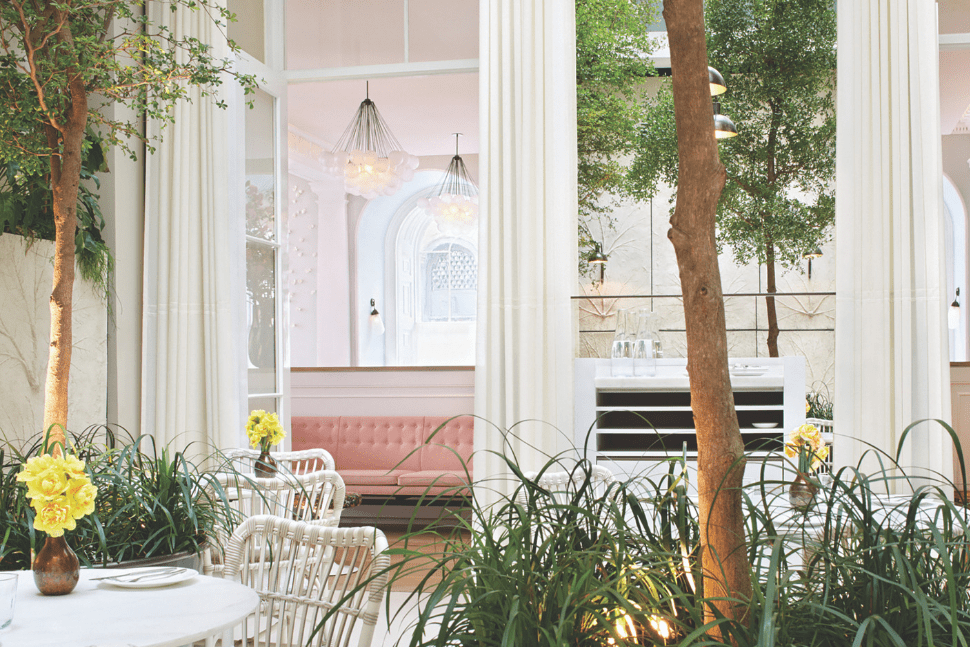 Pin
Pin Sutherland’s advice was to stop panicking and choose just a handful of things she could cut out. At first, it seemed impossible – what to do about the 3,600km of cling film Spring got through in a year? The stack of 30,000 plastic-coated ice cream cups? – but, in retrospect, it was easy. “We went cold turkey on it,” she says. “We bought lids, bee’s wrap, cellulose. We basically started to label properly instead of being lazy.” Plastic straws, pens, cups and soap dispensers all had to go. The last remaining rogue items are bin bags and (reusable) insulating sheets that protect the fragile salad leaves that come to Spring twice a week from Fern Verrow farm in Herefordshire. “We’re all in it together,” she insists. “We have to be. Otherwise it’s just Skye being wacko.”
Gyngell ascribes the foundations of her interest to growing up in 70s Sydney in “a macrobiotic household that did yoga every morning”. “My father [media baron Bruce Gyngell] was always going to India to do workshops. We grew up believing you are what you eat and that you could cure disease through the principles of macrobiotics,” she recalls. “Obviously, especially as teenagers, we all rebelled against that because we wanted to be the same as everyone else. We wanted hamburgers and Caramello Koala bars after school. But it’s funny what you almost come back to.”
Not that macrobiotics was for her, nor what she dubs “I-centred’ eating. “We can’t talk about our own health without talking about the health of the planet. It’s very narcissistic that ‘chia seeds-avocado-Fiji water’ school of eating. I think it’s all crap. There is no ‘superfood’ that’s going to turn you into Superman.”
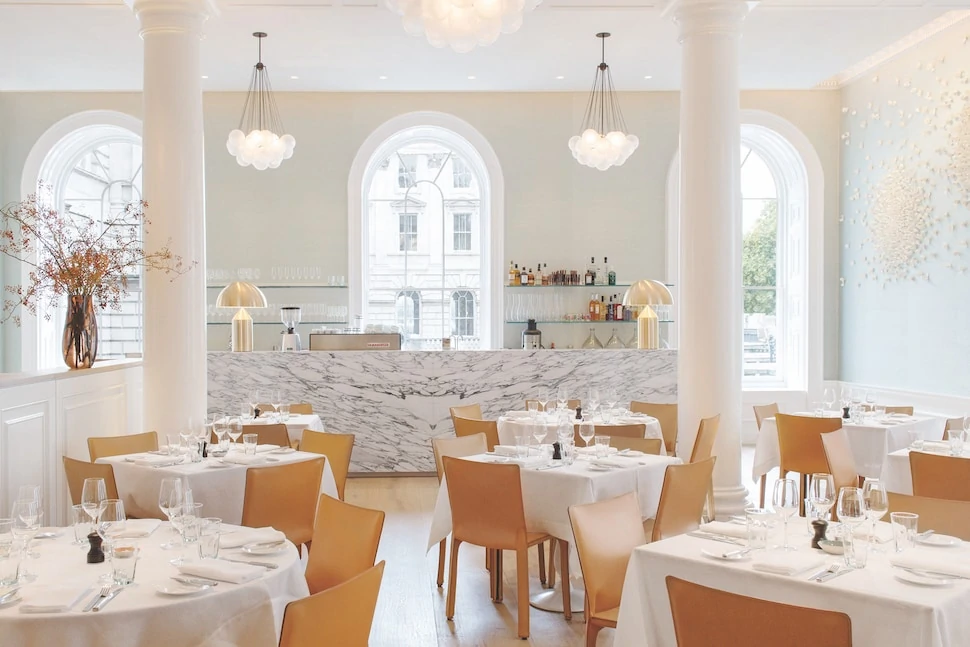 Pin
Pin Our conversation rarely strays too far from sustainability for the simple reason that Gyngell, once she gets started, becomes increasingly impassioned. It’s impossible not to be swept along. There are, however, so many other things one might discuss with her: her abortive law career (she dropped out of the University of Sydney within a year of starting); her professional journey from La Varenne cooking school in France to the kitchens of Anton Mosimann OBE at the Dorchester; her time as a society chef, writing for Vogue, cooking for Nigella; winning a Michelin star at Petersham Nurseries (an award she later described as “a curse”); being a single mother (to daughters Holly and Evie, now 29 and 21 respectively); and her heroin addiction (she got clean in 2000, the year her father died). But it’s hard to square all this life experience with the softly spoken, composed figure in front of me. “My best friend always says I live ‘a little life’,” she smiles. “I think I do. I see my friends, I love to read, I like to do Pilates. I’m very blessed in my life. I’m the happiest I’ve ever been.”
She’s also the busiest she’s ever been, splitting her time between Spring and Heckfield Place, the new luxury hotel in Hampshire (whose owner, Gerald Chan, is an investor in Spring) of which she is culinary director. There Gyngell presides over two restaurants: Marle, and the residents-only Hearth, where Gyngell finds herself cooking over live fire for the first time. “It’s been amazing learning how to control the fire. It’s really elemental. In our world, the food world, you get to learn all the time. That’s been an amazing gift.”
Learning experiences of a non-gastronomic nature have come through collaborations with, for example, Egg’s Maureen Doherty (whose eccentric staff uniforms at Spring divided opinion); landscape architect Jinny Blom; and artist Valeria Nascimento. “I love to see how other creative people work. It’s so often really similar to the way I come to something. It’s fun to do other things. There’s a monotony to cooking. It’s deeply creative but at the end of the day, 12 o’clock comes and the first tables come in and it becomes about service.”
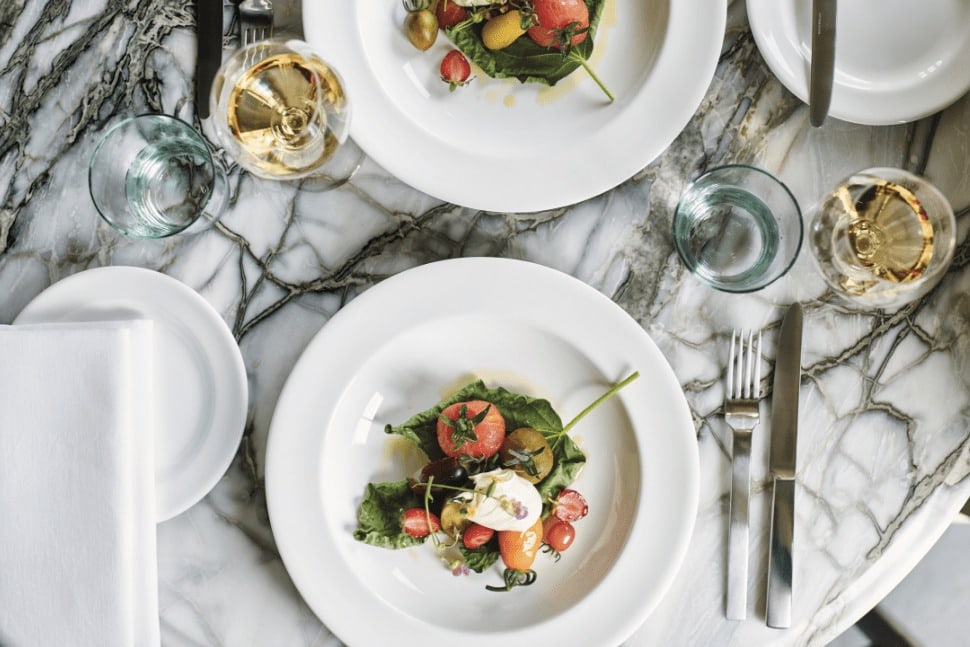 Pin
Pin Gyngell seems to surround herself with women (14 out of 22 chefs on the Spring brigade are female) and cites many among her personal heroes (Alice Water of Chez Panisse, the late Judy Rodgers of Zuni in San Francisco, Australian cook Maggie Beer…). She’s a fan too of London’s youthful cadre of chefs: “I love what James Lowe is doing at Lyle’s. I love what Merlin Labron-Johnson is doing. I love people who cook with intelligence. I don’t love the complicated. I don’t like the ‘50 Best’ and the whole machismo thing that’s going on in the cooking world so much. It’s still very male-dominated.”
Skye’s “most important relationship” outside her family is with farmer Jane Scotter of Fern Verrow, a 16-hectare biodynamic farm in the foothills of Herefordshire’s Black Mountains. Gyngell knew already of Scotter’s work but wrote to her in 2013 when she left Petersham Nurseries about the possibility of forging a relationship similar to those Gyngell had observed in California (at Chez Panisse and Manresa). “I thought she’d just say ‘bugger off, I’m not interested’. She said, ‘let’s have a conversation’.” From a tentative start, it’s now “like a marriage. Jane completely defines how we cook here.” It’s an exclusive relationship: Gyngell has committed to taking everything grown at Fern Verrow.
“In November, we get together to review how everything went – what we loved, what we struggled to use – and do a planning list for the following year. It’s absolutely meticulous. We now know the ebbs and flows. We know that August, the most abundant time on the farm, is the least busy time for us. We freeze every single one of her summer fruits: raspberries, golden raspberries, two or three types of strawberries, jostaberries and loganberries. We put them in the freezer and use them all the way through so the year, so in the winter we can have jostaberry or mulberry ice cream.”
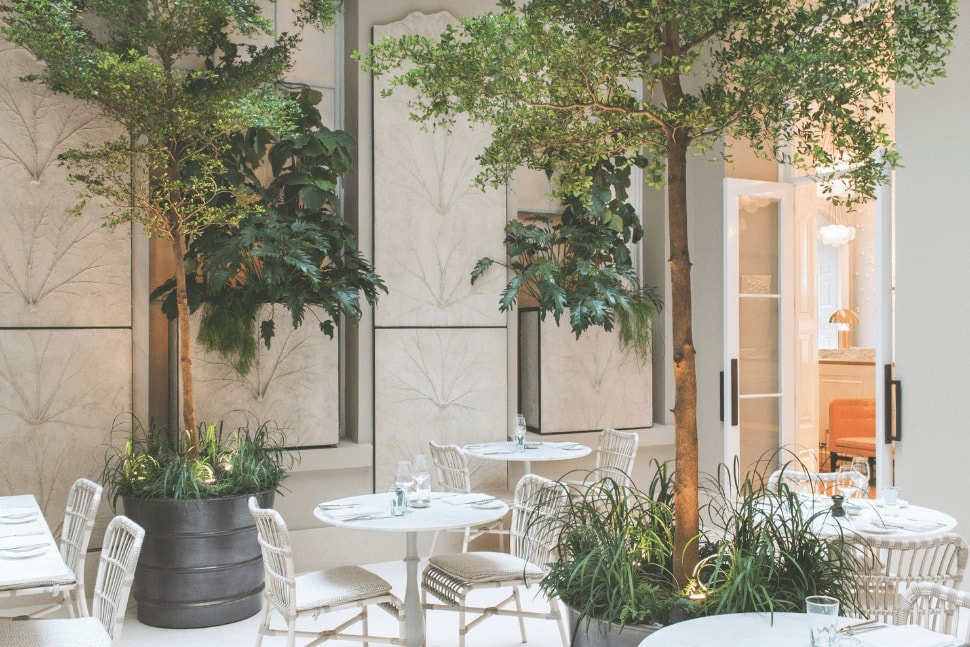 Pin
Pin I make the observation that when I think of Gyngell’s culinary style, I think of those “simple” dishes that grander chefs so often ignore: salads, soups, ice cream. Would she agree? “I cook the way I like to eat,” she says simply. “Ice cream is an obsession. I think it’s a really beautiful way to capture fruit flavours. At Petersham we used to have three desserts on the menu and one of them was always an ice cream. It hardly ever sold but I never took it off in nine years.” As for salad, it’s a “death row meal”. “I’m Australian. You have a salad with every meal.”
Spring’s big success story has been its “Scratch Menu” (now in its second year), a £20 a head pre-theatre menu based around kitchen leftovers such as spent coffee milk (for labneh), buttermilk from making butter (for dressings) and even stale bread “re-milled” into flour for cakes. Previously, food waste at Spring had sat at around 32 per cent. It’s now down to four percent. “It’s part of who we are now. There’s a ‘scratch shelf ’ in the fridge. The chefs look at what we’ve got and come up with an idea. It’s a bit like Ready Steady Cook.”
“It’s nice because we can offer a £20 menu to people who may struggle to spend £65 a head,” she says, interrupting herself to add, in the firmest of tones: “I don’t apologise for the prices that we charge here. I pay people properly. I’m happy to pass it on to you.” Whether it’s leftover cauliflower leaves or £30 a kilo borlotti beans – good food costs – Gyngell’s goal is to celebrate beautiful produce. “I’ve always been a very simple cook but the more and more respectful we feel around the produce, the less and less we want to alter it,” she says. “My real interest is to champion food that’s grown in good clean energised, aerated, healthy soil on a good, clean, healthy, beautiful planet.”
Spring, Somerset House, Lancaster Place, WC2, springrestaurant.co.uk
Heckfield Place, Hampshire, RG27 0LD, heckfieldplace.com
Favourite gallery: The Serpentine
I love the Serpentine Gallery because it’s small and it’s open to everyone. The exhibitions are excellent and it has the best bookshop, I think, in London.Kensington Gardens, Kensington W2, serpentinegalleries.org
Lunch date: Lyle’s
Lyle’s is a go-to restaurant. The Guest Series that James Lowe does is such a clever idea. He brings all these incredible chefs from around the world to cook with him, so you get to experience the food from, say, Acme in Sydney, that you’d never otherwise get to experience. I go to a lot of those.
Tea Building, 36 Shoreditch High Street, Shoreditch, E1, lyleslondon.com
Hidden gem: John Sandoe Books
John Sandoe Books is a higgledy-piggledy bookshop off the King’s Road where I know I can always ask for a recommendation. That personal one-on-one service makes it very special. I often buy four or five books but don’t always read them. I put them on my bookshelf then forget and go out and buy more.
10-12 Blacklands Terrace, Chelsea, SW3, johnsandoe.com
Homeware haven: Summerill & Bishop
Summerill & Bishop is a very beautiful cookware shop. Sometimes I would go and stand in the little shop in Clarendon Cross just for inspiration. The way they’d lay a beautiful table, their thoughtfulness and consideration. It’s that nurturing thing about cooking that I just love.
100 Portland Road, Notting Hill, W11, summerillandbishop.com
Market of choice: Spa Terminus
One of the most lovely things to do on a Saturday morning is to go to Spa Terminus in South East London. Spa Terminus is a really important market because it’s for farmers and producers, not cooked food vendors, so you really go and shop there for your flowers, your fruit and your vegetables.
Spa Road, Bermondsey, SE16, spa-terminus.co.uk





